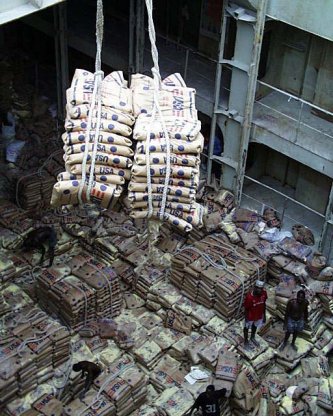
David Walker and Dr Rick Hodges of NRI's Food Management & Marketing Group have recently presented the developmental advantages of local or regional procurement of food aid to meetings at the Centre for European Policy Studies (Brussels) and at Chatham House (London). Their report was based on case studies in Uganda and Ethiopia, conducted under the European Community's Poverty Reduction Effectiveness Programme EC-PREP, funded by DFID.
The case study findings confirmed the hypothesis that local and regional procurement of food aid can make a much larger contribution to the economies of developing countries, and can benefit poor people in particular, and that policies can be put in place to increase these benefits. The report (co-authored by economists Jonathan Coulter of NRI's Enterprise, Trade & Finance Group, and Tiago Wandschneider) emphasizes that, if procured locally or regionally, food aid should be regarded as an investment tool for rural development rather than merely as a relief tool to meet the short-term needs of hungry people. The PowerPoint file of the presentation is available to download here (287Kb).
The authors argue that studies of the advantages of local food aid procurement should not end with this report, but that more evidence must still be gathered, both to demonstrate the extent of positive impacts on development and to guide approaches to local procurement so that such impacts can be maximized.
For more information on food aid procurement policies and their impact, contact David Walker (

